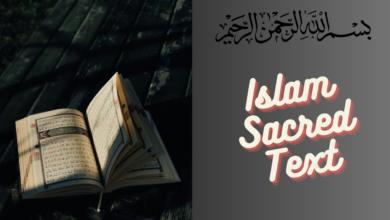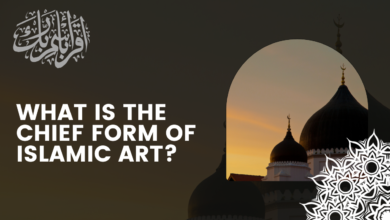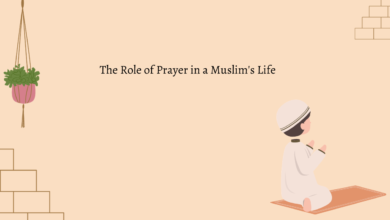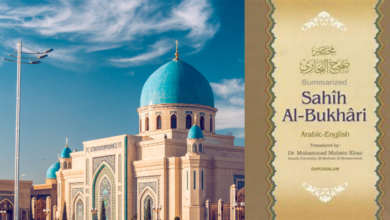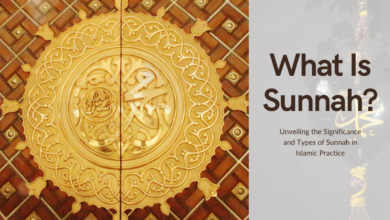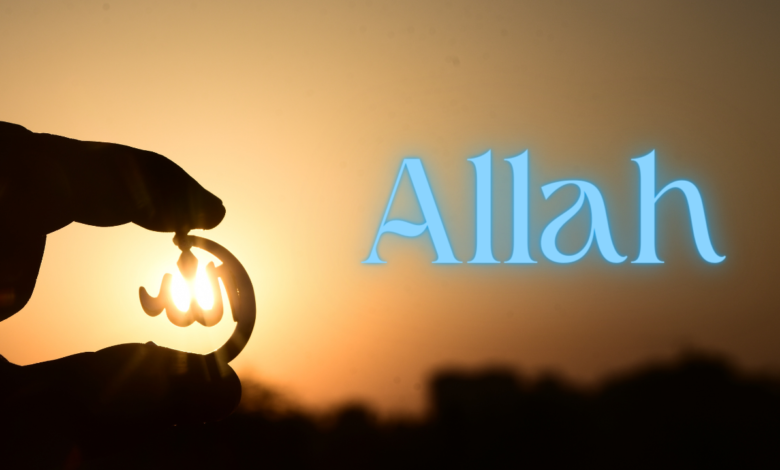
Who is Allah in Islam?
Allah is the one and only God in Islam. Muslims believe that Allah is the Creator of the universe, the sustainer of all life, and the only one worthy of worship. Allah is considered to be all-powerful, all-knowing, and merciful.
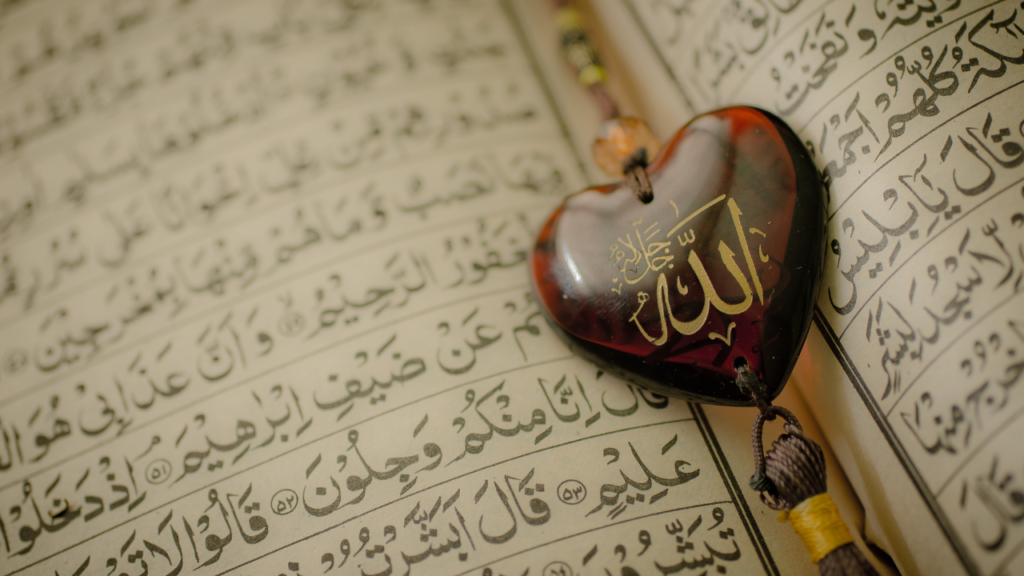
Introduction
Islam, one of the world’s major religions, is characterized by its monotheistic belief in one God, whom Muslims refer to as “Allah.” Understanding the concept of Allah is fundamental to comprehending the Islamic faith and its practices. In this article, we will delve into the core beliefs and attributes associated with Allah in Islam.
The Oneness of Allah
At the heart of Islam lies the concept of Tawhid, which signifies the absolute oneness of Allah. This belief is encapsulated in the Shahada, the Islamic declaration of faith, which states, “There is no god but Allah, and Muhammad is His messenger.” Muslims believe that Allah is the one and only deity, the Creator and Sustainer of the universe, and that He is unparalleled in His power, knowledge, and wisdom.
Attributes of Allah
- Merciful and Compassionate: One of the most frequently mentioned attributes of Allah in the Quran is His mercy and compassion. Muslims believe that Allah’s mercy encompasses all creation, and He is always ready to forgive those who sincerely repent for their sins.
- All-Knowing and All-Seeing: Allah is believed to possess complete knowledge of everything that has happened, is happening, and will happen. His omniscience is a source of comfort and guidance for Muslims who seek His wisdom.
- All-Powerful (Almighty): Allah’s omnipotence is central to Islamic belief. He has the power to create, sustain, and destroy, and nothing happens in the universe without His will.
- Just and Fair: Allah is considered the ultimate judge. Muslims believe that His judgments are always just, and He rewards good deeds and punishes wrongdoing accordingly.
- The Creator: Allah is the sole Creator of the universe, and everything in existence owes its origin to Him. Muslims are reminded of this fact regularly in the Quran as a means of reinforcing their faith.
- The Provider: Allah is the Sustainer and Provider for all living beings. Muslims trust in Allah’s provision for their needs and are encouraged to be grateful for His blessings.
- The Forgiver: Islam teaches that Allah is quick to forgive the sins of those who sincerely repent and seek His forgiveness. This belief in divine forgiveness offers solace and hope to believers.
- Incomparable: Allah is beyond comparison and transcends human understanding. The Quran emphasizes that there is nothing in creation that can be likened to Allah.
Also Check
- Why Islam?
- Why is Friday important for Muslims?
- How many children did Prophet Muhammad (PBUH) have?
- Why was Jerusalem important to Muslims?
- How are Muslims buried?
The Role of Allah in Islamic Practice
In Islam, the belief in Allah is not merely a theoretical concept but a guiding force that influences every aspect of a Muslim’s life. Here are some key ways in which the belief in Allah impacts Islamic practice:
- Prayer (Salah): Muslims pray five times a day facing the Kaaba in Mecca as a direct act of worship to Allah. These daily prayers serve as a means of connecting with the divine.
- Fasting (Sawm): During the holy month of Ramadan, Muslims fast from dawn to sunset as an act of devotion to Allah. This practice helps them develop self-discipline and empathy for the less fortunate.
- Charity (Zakat): Muslims are required to give a portion of their wealth to those in need, known as zakat. This obligation reinforces the belief in Allah as the ultimate Provider and the importance of helping those less fortunate.
- Pilgrimage (Hajj): Every able-bodied and financially capable Muslim is required to undertake a pilgrimage to Mecca at least once in their lifetime. This journey is a physical and spiritual demonstration of submission to Allah.
- Morality and Ethics: Islamic ethics are rooted in the belief in Allah’s commands as revealed in the Quran and the teachings of the Prophet Muhammad. Muslims strive to lead a righteous life guided by these principles.
Conclusion
In Islam, Allah is the central and singular focus of faith and worship. Understanding who Allah is in Islam involves recognizing His oneness, His attributes of mercy, knowledge, and power, and His role as the Creator and Sustainer of the universe. This belief in Allah shapes the daily lives, actions, and moral values of Muslims around the world, providing them with guidance and a sense of purpose in their journey of faith.
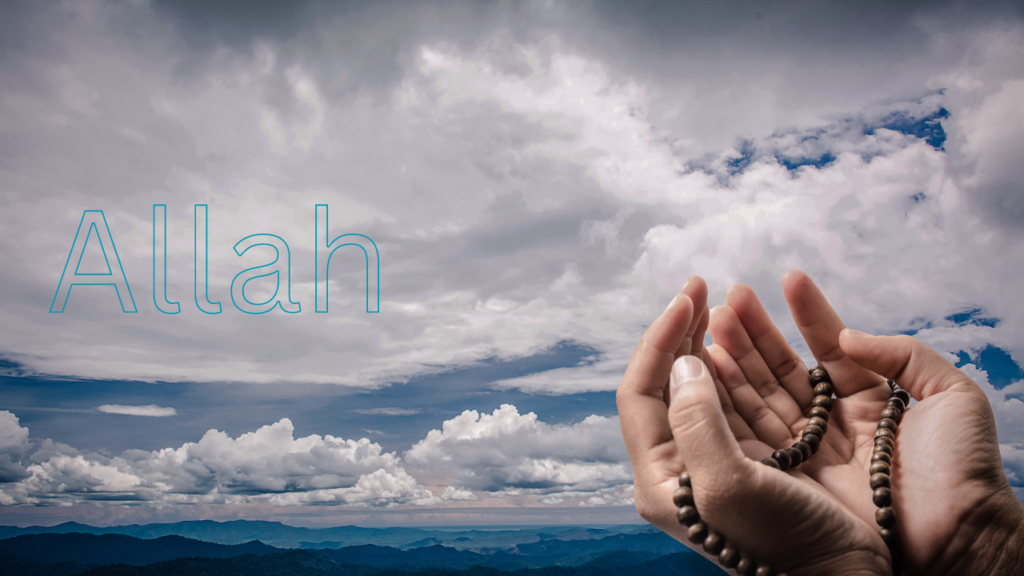
(FAQs) about who Allah is in Islam:
Who is Allah in Islam?
Allah is the one and only God in Islam. Muslims believe that Allah is the Creator of the universe, the sustainer of all life, and the only one worthy of worship. Allah is considered to be all-powerful, all-knowing, and merciful.
How do Muslims understand the concept of Allah?
Muslims understand Allah as being beyond human comprehension. Allah’s attributes are described in the Quran, and Muslims believe in the Oneness of Allah (Tawhid), meaning there is no god but Allah.
What are the 99 names of Allah?
In Islam, Allah is often referred to by his 99 names, or attributes. These names describe various aspects of Allah’s nature, including His mercy, compassion, and power. Examples of these names include “Ar-Rahman” (The Most Gracious), “Al-Quddus” (The Most Holy), and “Al-Malik” (The Sovereign).
How is Allah different from the gods of other religions?
Allah is unique in Islam as the one and only God. While other religions may have multiple deities, Allah is seen as indivisible and the ultimate source of all creation.
What is the Islamic concept of monotheism regarding Allah?
The Islamic concept of monotheism, or Tawhid, emphasizes the absolute oneness of Allah. Muslims believe that Allah has no partners, associates, or children. He is the sole creator and sustainer of the universe.
Why is Allah often referred to as “the Most Merciful” in Islam?
Allah is frequently called “the Most Merciful” in Islam because Muslims believe that His mercy is vast and boundless. It is an essential aspect of Allah’s nature, and Muslims seek His forgiveness and mercy in their daily prayers.
How do Muslims worship Allah?
Muslims worship Allah through acts of devotion such as daily prayers (Salat), fasting during the month of Ramadan (Sawm), giving to charity (Zakat), and making a pilgrimage to Mecca (Hajj). These practices are fundamental to their faith and help strengthen their connection with Allah.
What is the significance of the Quran in relation to Allah?
The Quran is believed to be the literal word of Allah, as revealed to the Prophet Muhammad. It serves as a guide for Muslims in matters of faith, morality, and conduct. Muslims hold the Quran in high esteem and consider it the primary source of divine guidance.
Can non-Muslims understand or relate to the concept of Allah in Islam?
While the concept of Allah is central to Islam, people of other faiths can appreciate the idea of a monotheistic, all-powerful, and merciful God. Many aspects of Allah’s attributes, such as compassion and justice, are universal and can resonate with people of various religious backgrounds.
What is the ultimate goal of a Muslim’s relationship with Allah?
The ultimate goal of a Muslim’s relationship with Allah is to seek His pleasure, obey His commandments, and attain closeness to Him. This is believed to lead to spiritual fulfillment, inner peace, and eternal salvation in the hereafter.

